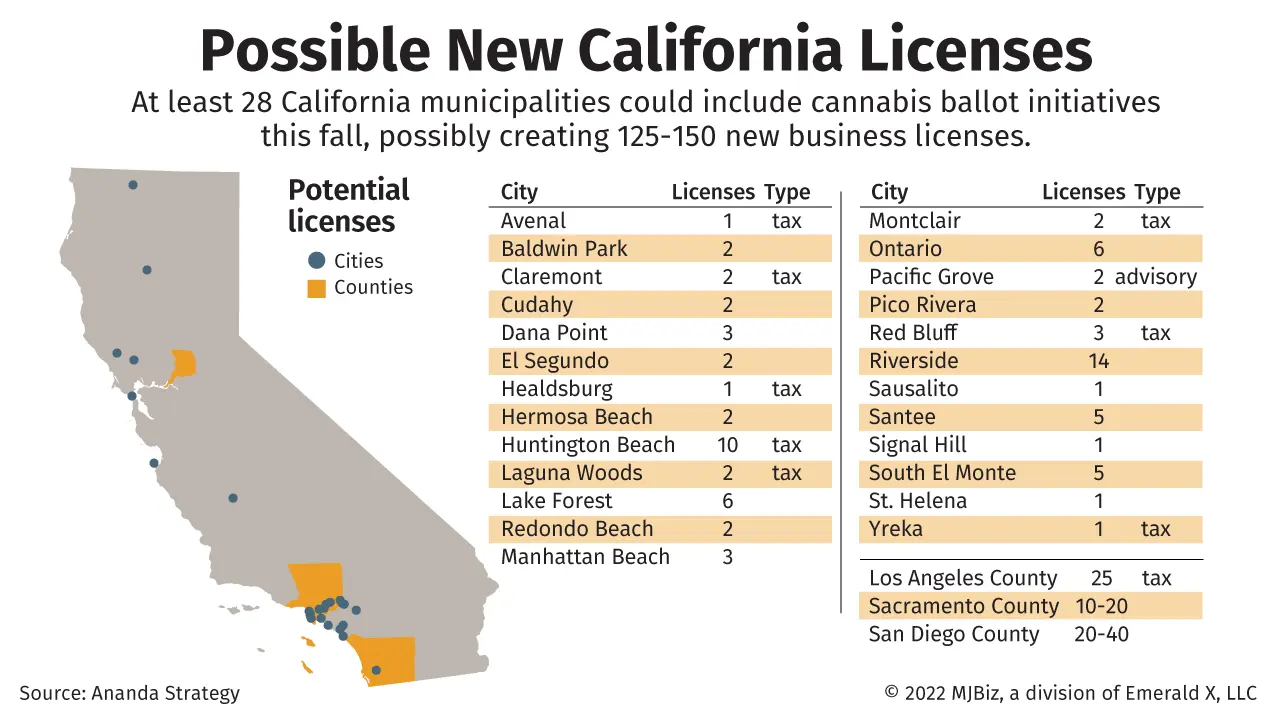
The cannabis industry is not immune to the costly potential of a product recall, which is a necessary evil required for regulated markets to remain functional.
Recalls often occur when the supply chain isn’t being carefully managed, if a product fails certain testing requirements or simply from a lack of communication with your state’s health department.
From startups to multistate operators, recalls might lead to unnecessary or mandatory regulations and, depending on the severity, could force a company to close its doors for good.
Although recalls are overall damaging for any industry, one good takeaway from a recall is that it provides an example of what not to do, so history doesn’t repeat itself.
Controlling the supply chain
Consider how important it is to maintain the same safety and quality measures across all players in the supply chain.
If contaminated cannabis flower is used to make edibles and concentrates, all those products must be recalled.
Drip, a Colorado concentrates brand, uses its concentrates to infuse various beverages, condiments and pre-rolls.
In 2021, the Colorado Department of Revenue and the Colorado Department of Public Health and Environment issued a recall for Drip products after finding batches of marijuana that were untested, not tested properly or, in certain cases, confirmed to contain levels of contaminants and potency levels above the acceptable limits.
As a result, the two agencies deemed all Drip products as potential threats to public health and safety.
For MSOs, keeping a close eye on your suppliers and contract manufacturers is especially crucial. Although brands aim to do everything, they can to ensure the product remains consistent across borders, there’s no guarantee that each manufacturing facility will adhere to the same Good Manufacturing Practice (GMP) used in your facility, later prompting a recall.
This speaks to the importance of supplier controls and the ripple effect that occurs when one supplier across an entire product’s supply chain doesn’t follow proper safety protocols.
Failure to meet testing requirements
At this point in time, every market has its own testing protocols in place that vary greatly across state borders, sometimes changing based on recalls that take place.
The most common claims made by testing labs that would prompt a recall are related to mold or pesticides. The largest cannabis recall in Michigan’s history is a prime example of this.
Michigan’s Marijuana Regulatory Agency issued a recall for roughly 64,000 pounds of cannabis flower because of unreliable test results.
This 2021 recall impacted more than 400 dispensaries and nearly $200 million worth of product.
The flower needed to be retested for the microbial compliance panel.
The MRA warned that consumers with weakened immune systems or lung disease were at the highest risk for health-related incidents such as aspergillosis – an infection caused by a common mold – suggesting there could be mold in the products.
After legal pushback by the lab that issued the test results deemed unreliable by the MRA, the recall was inevitably lifted, allowing potentially contaminated products to be sold to consumers once again.
Not only are adult-use consumers in Michigan now doubting the safety of products being sold to them, the medical patients who are immunocompromised are also at risk of long-term negative health effects.
Although portions of the marijuana that was retested after the initial recall was indeed contaminated, a spokesperson for the lab in question claims that the contamination could have happened at any point in the handling process, as the product goes through a variety of uncontrolled environments.
While this response potentially explains why modifications were made in March of this year to allow more movement of product within the market before requiring final safety compliance testing, several important factors are being widely ignored.
Primarily, the industry needs to steer away from the notion that if a portion of a batch or lot passes finished product testing, then the whole batch is safe.
Preventative measures should be taken to ensure cannabis products don’t get contaminated in the first place.
Finished-product testing should be used to verify that the product is safe and that your facility’s preventative controls are working, not as an end-all-be-all solution.
Miscommunication with your market’s health department
Miscommunication or lack of communication with your state health department could also be the leading cause of a product recall.
We’ve witnessed examples of this miscommunication in action across legal cannabis markets such as Arizona, Colorado, Missouri and Oklahoma.
After enduring several costly product recalls, the Arizona cannabis market went from being one of the only states with no requirements for testing marijuana to one with some of the strictest safety standards in the country.
The Arizona Department of Health Services now requires cannabis testing labs to turn around test results in 10 days.
Failure to meet the 10-day requirement can result in fines as high as $5,000 per day.
Despite the possibility of a hefty fine, marijuana retailers that are frustrated by the slow turnaround time for results, the high probability of failure or the lack of testing accuracy might give up on ordering safety tests altogether.
In June 2021, a cannabis testing lab in Arizona initiated a voluntary recall of certain cannabis products after test results showing salmonella and aspergillus traces.
The lab later clarified that neither the product manufacturer nor retailer was at fault. Instead, the recall was a result of an audit-based testing discrepancy between the testing lab and the state health department.
This once again points to the need for standardization of cannabis testing labs. States are leaning far too heavily on finished-product testing.
If we ensure the product is safe before it gets to that point, issues such as these rarely occur.
Take the food industry, for instance. It has several more risks and hazards than the cannabis industry, yet the food industry does not require finished-product testing.
One way to avoid unpleasant surprises such as recalls is to conduct a mock recall at least once a year. That way, if an actual recall occurs, businesses know how to save face with the public while quickly minimizing the loss of injuries, profits and consumers.
Preventative measures such as cGMP certifications (the U.S. version), promoting continuous self-regulation and adhering to an overarching safety standard compliant with Global Food Safety Initiative (GFSI) requirements will also help the industry mitigate these hurdles.
The pandemic forced many companies to face the harsh reality that they were unprepared for a real-life crisis.
This lack of preparedness in 2020 continued into the following year, leading to several cannabis industry recalls.
While recalls are very costly for everyone involved, the most detrimental loss is perhaps the consumer’s trust.
At the end of the day, a major benefit of legalizing cannabis products made in highly regulated facilities was offering safer options to consumers compared to what you’d find on the illicit market.
If the regulated cannabis industry is unable to provide that peace of mind for the consumer, then who will?
Tyler Williams is the founder and chief technical officer of St. Louis-based Cannabis Safety & Quality (CSQ). He can be reached at twilliams@csqcertification.com.
To be considered for publication as a guest columnist, please submit your request here.





